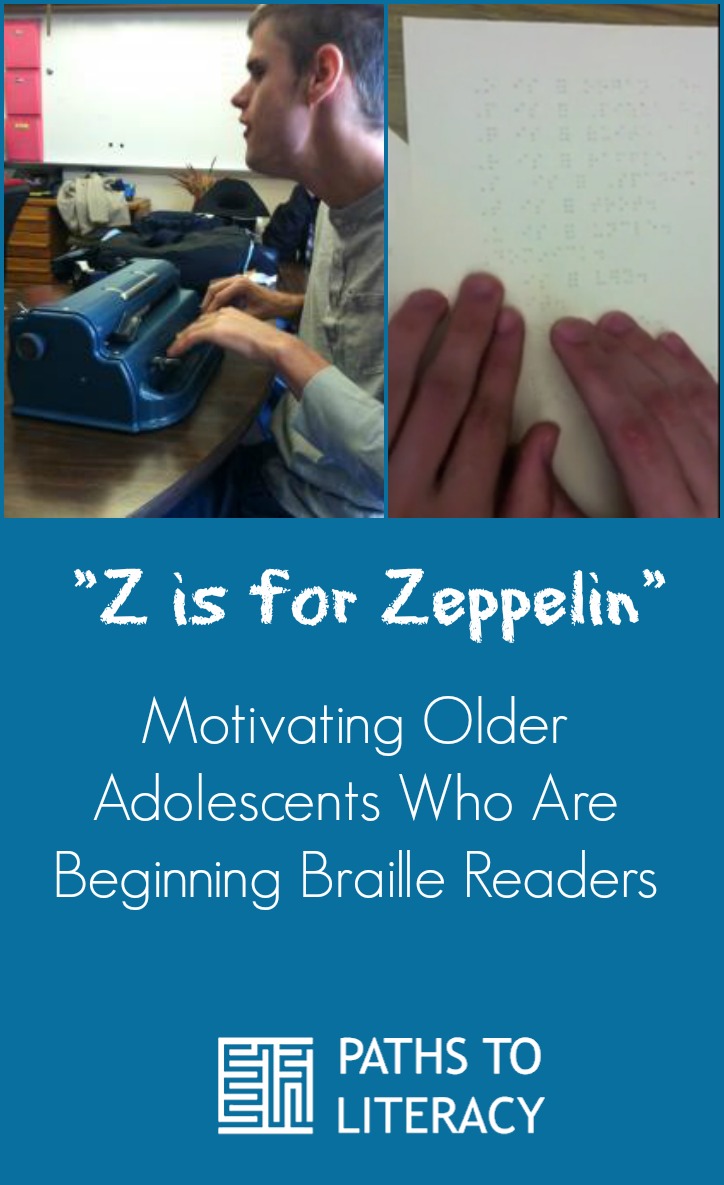Motivating Older Adolescents Who Are Emerging Readers

Finding appropriate literacy instruction for students who have significant multiple disabilities in addition to their visual impairment can be a challenge. Some issues include:
- Finding age-appropriate literacy materials, especially for older students who are emerging readers and writers
- Creating meaningful opportunities for the student to practice their literacy skills within functional and authentic activities
Alphabet books can span across many different age levels for our emerging readers and writers, allowing them to access literacy in a predictable, repetitive, and enjoyable way. Students also have the flexibility of including their own interests, experiences, and preferred topics throughout their own book.
This video shows an older high school student who is totally blind and has a limited set of interests. This is a student who can read and write in uncontracted braille, but has difficulty with comprehension skills. This student was motivated to read, re-read, and re-re-read his alphabet book because all of his favorite topics were included!
- Student generated sentences for each letter of the alphabet (sentences can be in braille, print, picture/photo, tactile, or auditory form)
- Have an idea of your student's background knowledge and interests.
- Decide how you would like to elicit sentences, words, or phrases to represent each letter of the alphabet.
- Have your student write as much as possible based on their learning media preference (e.g. braille, print, dictation, pictures, etc.)
- Start at the beginning: "A is for _______."
- Take your time. The alphabet book can focus on one letter a day, can include multiple words for each letter, or can expand as student shows expanded interests.
- Make a recording of your student reading his/her alphabet book and record it onto a CD to play at home or share with friends
- Publish the story in a book to keep in the classroom or school library
- Use student-made tactile representations to augment the language in the story
- Consider making category-specific alphabet books (e.g. The Food Alphabet)
- The variations are endless!

